Wedding Food Tasting Tips: Savor Every Bite for Your Big Day
Planning your wedding menu is an exciting part of the journey. You want your guests to enjoy delicious food, and tasting sessions are a great way to ensure everything is perfect for your big day. Having a successful wedding food tasting can help you make the best choices and avoid last-minute surprises.
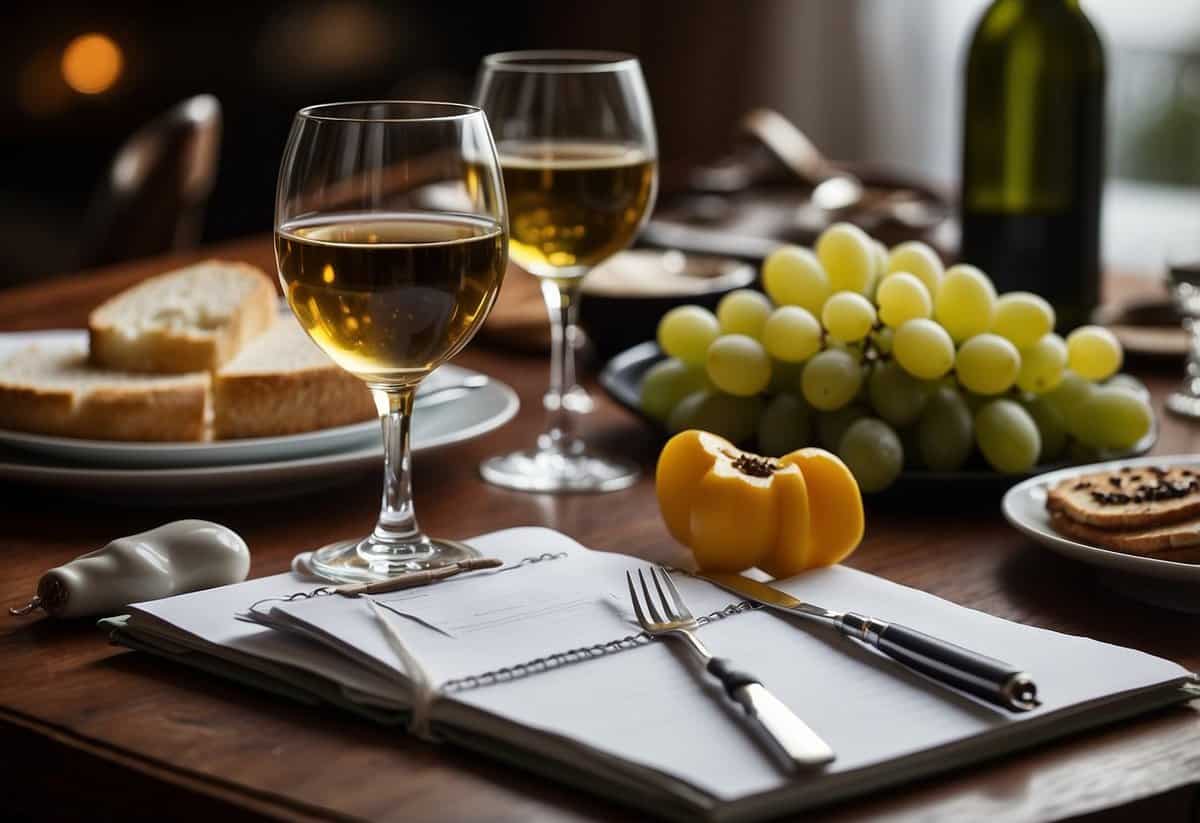
When you visit venues and meet caterers, this is your chance to sample various dishes and find out what will work best for your celebration. From appetizers to desserts, the options can be vast and diverse, making the experience both fun and essential.
1) Bring a list of dietary restrictions
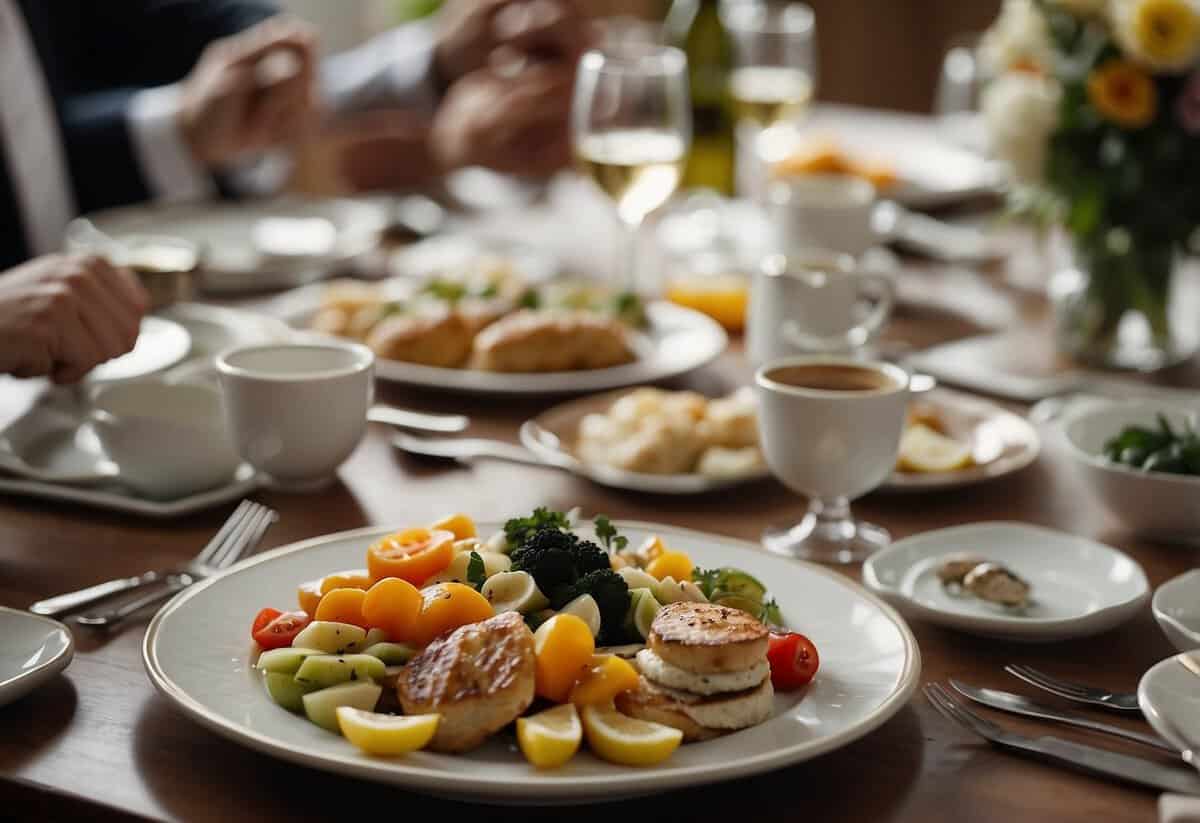
It’s important to consider your guests’ dietary needs for the wedding. Create a list of any dietary restrictions, such as food allergies, religious restrictions, or lifestyle choices like vegan or gluten-free.
Share this list with your caterer ahead of time. This helps ensure they can prepare safe and delicious options for everyone. Your guests will appreciate the thought you put into making sure they can enjoy the food, too!
2) Schedule Your Tasting After Lunch
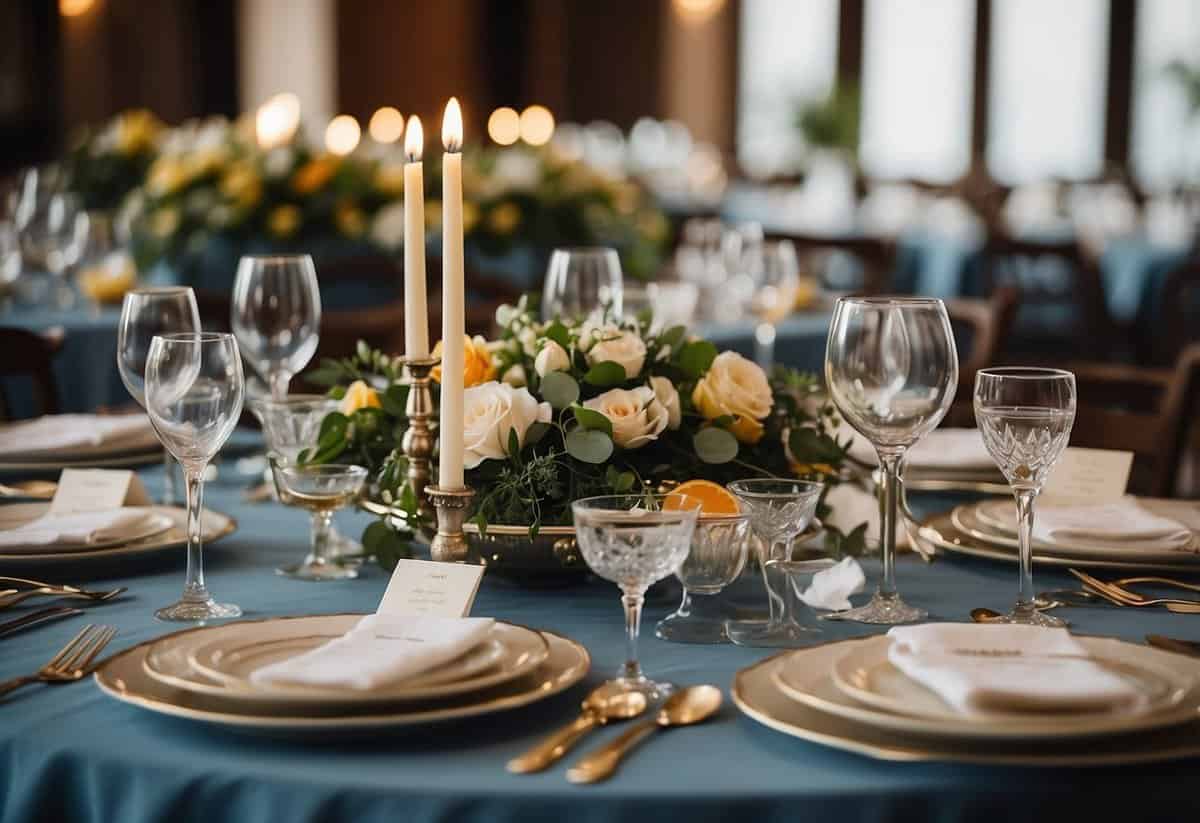
When planning your wedding food tasting, it’s smart to schedule it after lunch. This helps ensure that you won’t be too hungry. Being very hungry can make you less picky and more likely to think everything is delicious.
Having a light meal before your tasting can keep your senses sharp. You’ll be better able to focus on the flavors and textures of the food. This makes it easier to choose the best dishes for your big day.
Remember that tasting sessions usually include several courses. If you’re too hungry, you might eat too quickly and miss subtle details. Scheduling after lunch gives you enough time to enjoy each bite and ask questions.
3) Take Photos of Each Dish

Taking photos of each dish during your wedding food tasting is a great idea.
Photos help you remember what each dish looked like. This can be really useful when you’re making your final menu choices.
Make sure to capture the details. Snap pictures from different angles to really show the presentations.
You can also share these photos with friends or family if you want their input. This way, they can help you decide what looks most appetizing.
Keep your phone or camera ready, and make sure you have enough storage space for plenty of pictures. Happy tasting!
4) Ask about seasonal ingredients
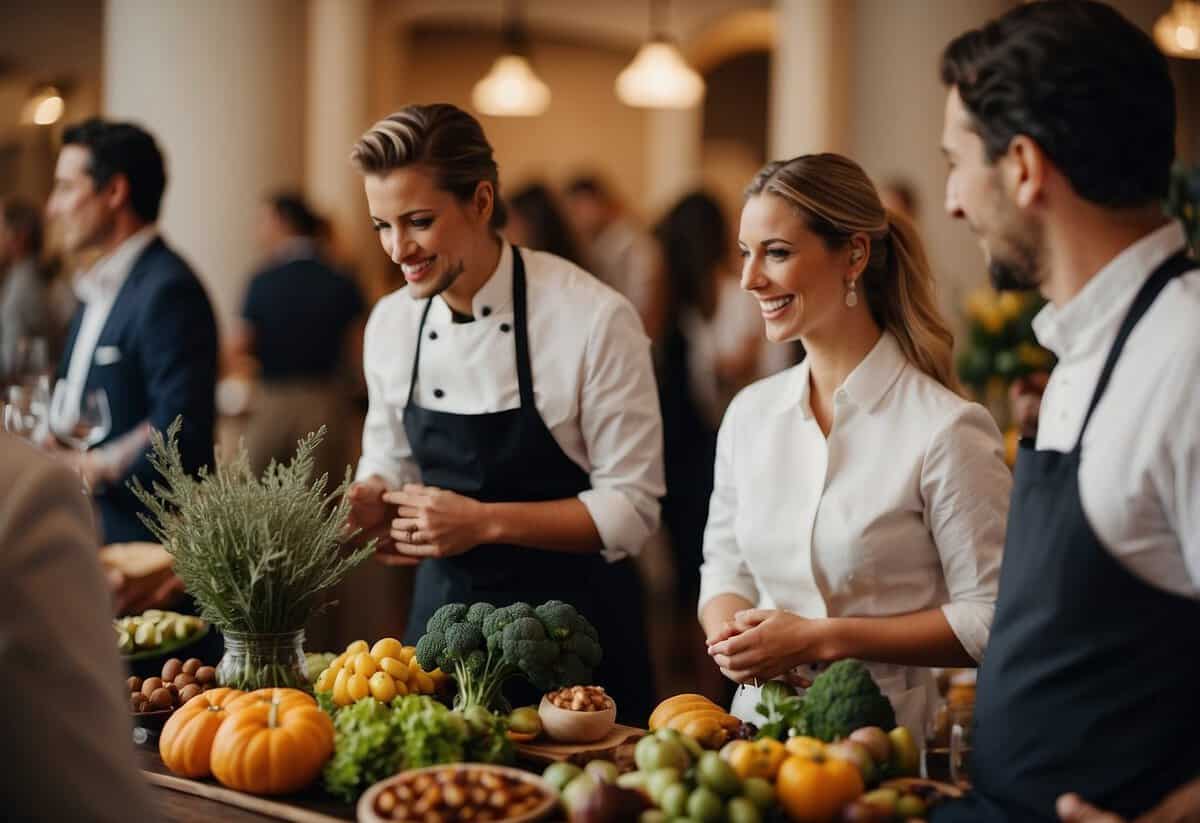
When planning your wedding menu, always ask about seasonal ingredients. Seasonal foods are fresher, tastier, and often more affordable. They can really enhance the quality of your dishes.
Talk to your caterer about what’s in season around your wedding date. This can help you decide which ingredients to highlight in your menu to match the best flavors of that time of year.
Using seasonal ingredients can also give your menu a unique touch. It adds a special element that your guests will appreciate. So, don’t hesitate to ask your caterer for their advice on the best seasonal options available.
5) Compare Multiple Caterers
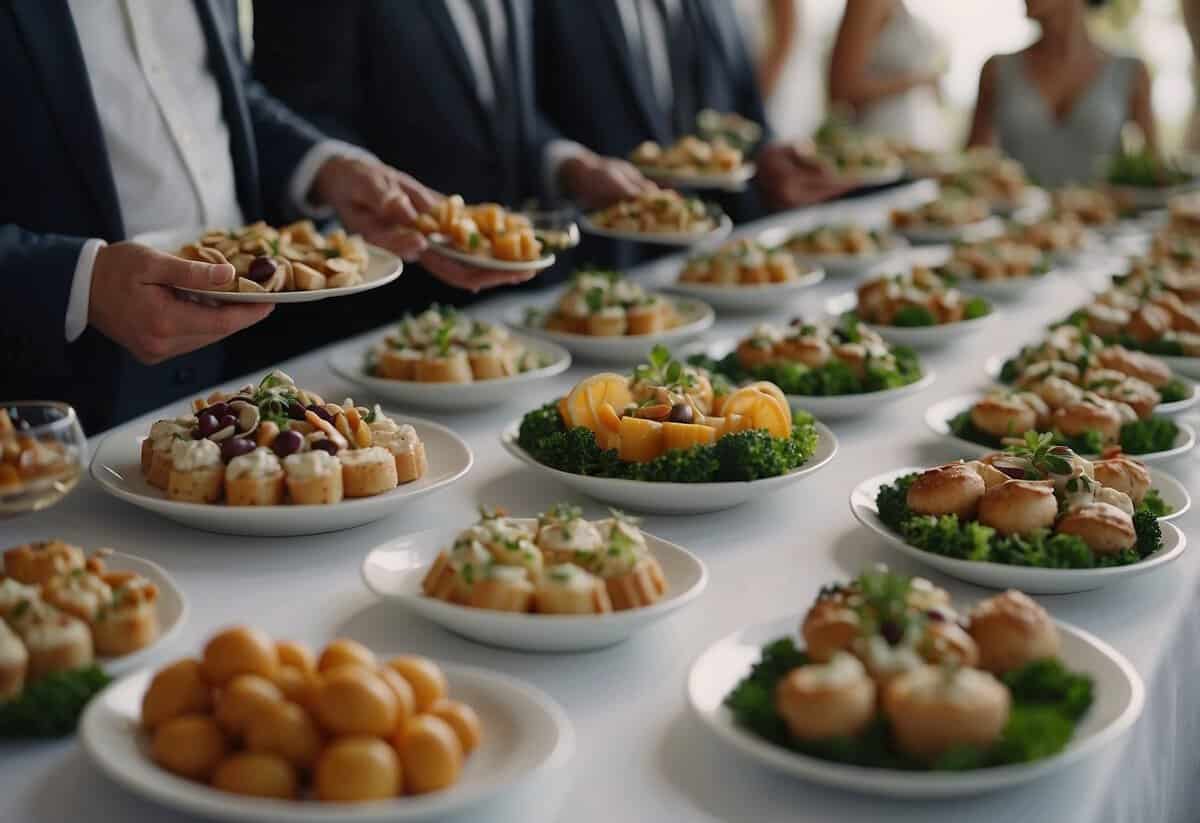
It’s important to compare multiple caterers for your wedding.
Visit tastings from at least three different caterers. This helps you notice differences in food quality, presentation, and taste.
Pay attention to how each caterer presents themselves and their dishes. Note the variety and creativity of the menu options.
Ask about their experience with weddings similar to yours. Compare prices and what each package includes.
Make sure to take notes during each tasting. This way, you can easily compare later.
6) Consider table service vs. buffet
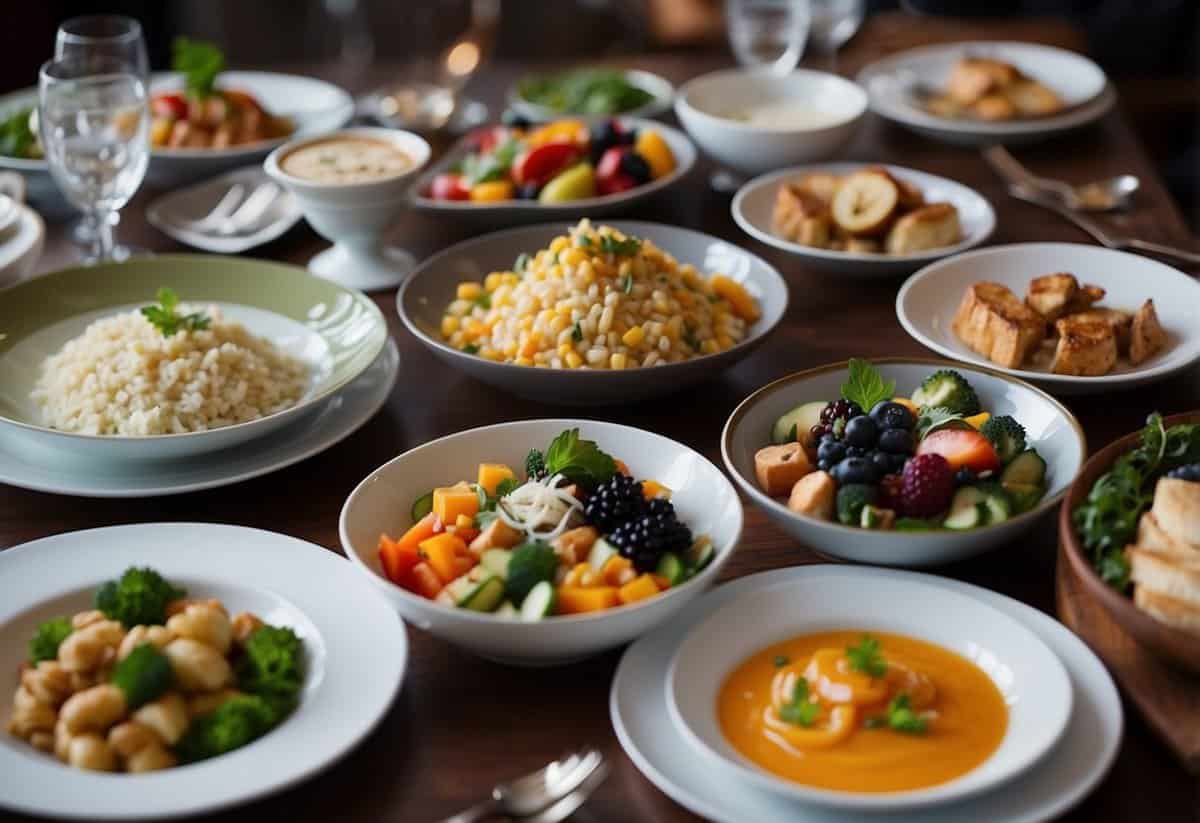
When planning your wedding menu, think about whether you want table service or a buffet.
Table service provides a formal feel. Guests can relax as servers bring meals to their tables. This style makes for a classy experience and can include multiple courses.
On the other hand, buffets offer a relaxed atmosphere. Guests serve themselves from a variety of dishes. This option can be more interactive and allow guests to choose what they like.
Size of the venue is important. Buffets need more space for food stations. Be sure your location can handle it.
Consider your guest count too. Buffets might lead to longer lines. Table service can keep things running smoothly, especially with a large crowd. Choose the style that best fits your wedding vibe!
7) Don’t Forget the Drinks
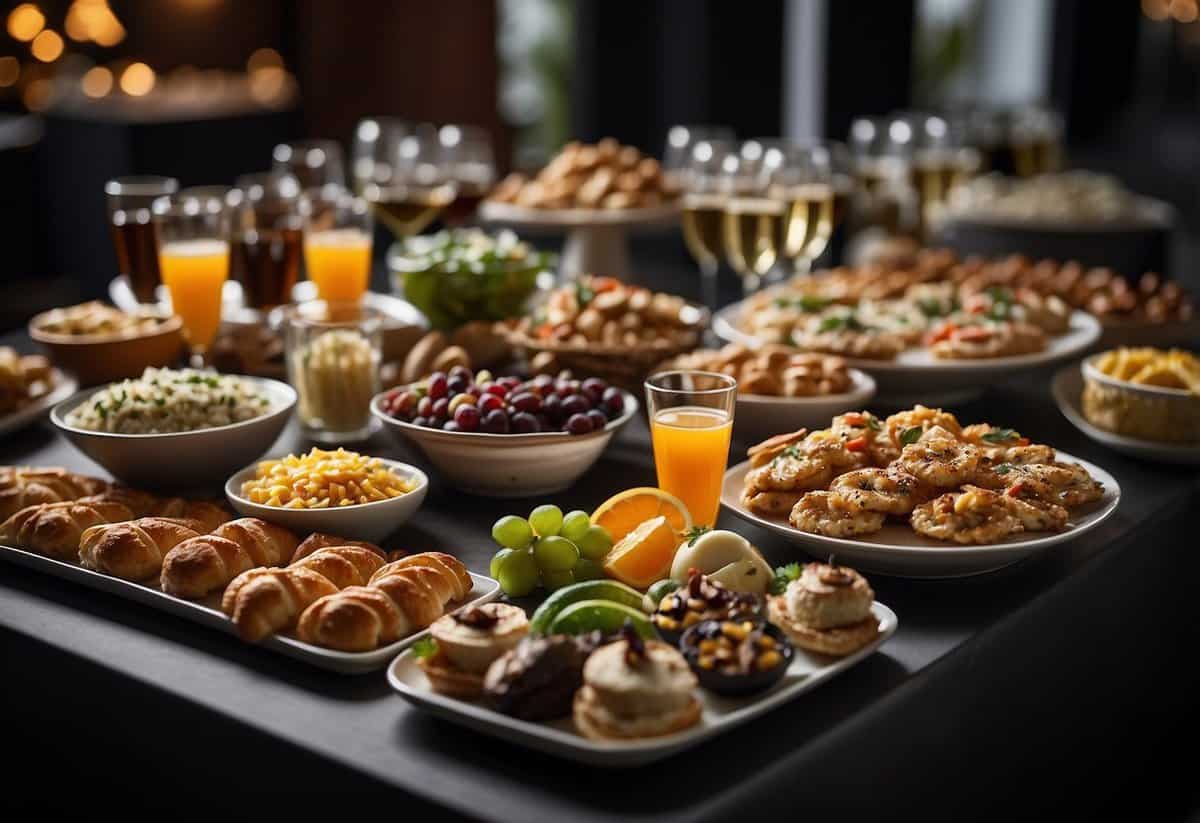
Drinks are a big part of your wedding experience. Pairing your food with the right drinks can enhance the flavors and make the meal more enjoyable.
Think about having wine pairings for your courses. For example, a light chardonnay with seafood or a medium-bodied merlot with red meat are great choices.
Cocktail hour is another opportunity to get creative. Pair mini cocktails with your hors d’oeuvres. Imagine mini margaritas with tacos or beer with mini hot dogs.
Make sure to consider non-alcoholic options too. Offer a variety of sodas, juices, and flavored waters so everyone has something to enjoy.
Don’t forget about the toast. Choose a nice champagne or a signature drink to celebrate the special moments. Your guests will appreciate the thought you’ve put into their experience.
8) Sample the cake options
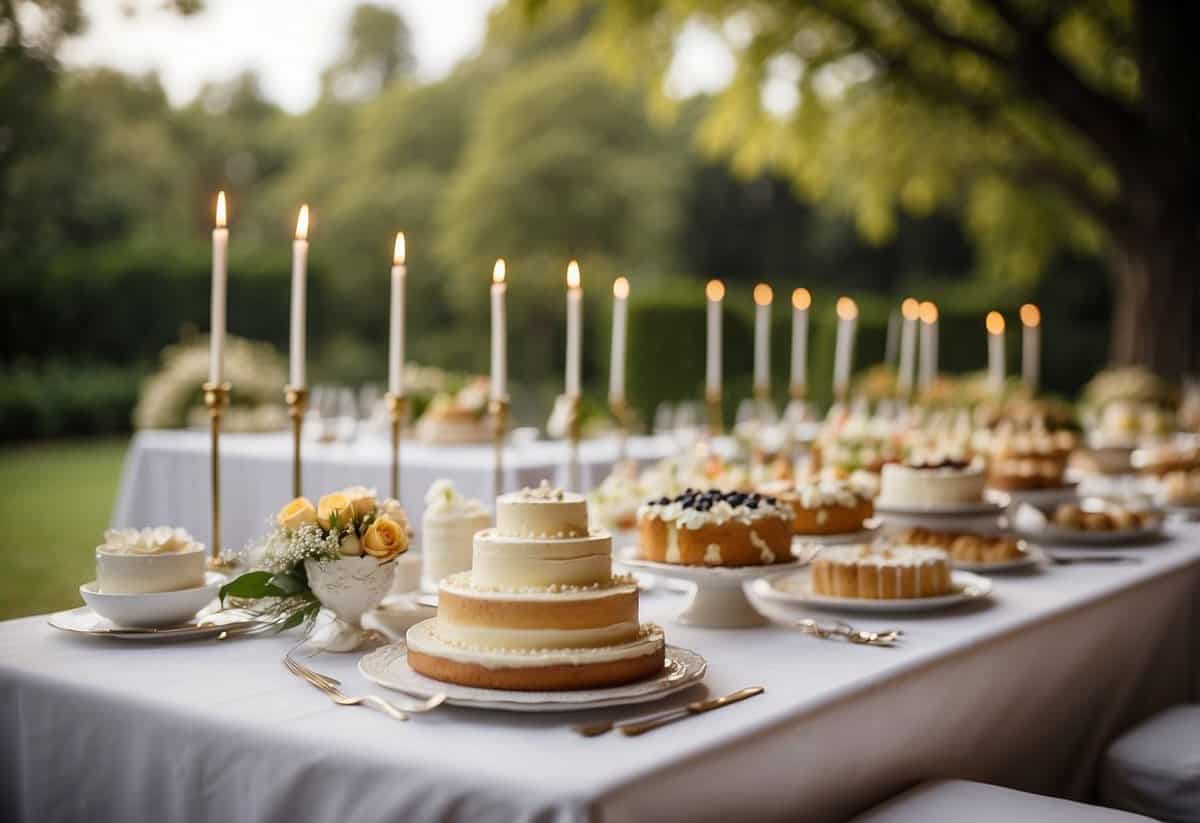
Cake tastings are one of the most fun parts of wedding planning. You get to try a variety of flavors, fillings, and frostings. Don’t be shy—tell the baker what you like and dislike.
Have a list of flavors you’re interested in trying. Whether it’s classic vanilla or adventurous salted caramel, let them know.
Consider texture as well as taste. A cake might taste great but feel too dry or heavy. Pay attention to how each bite feels in your mouth.
Think about how the cake fits with your overall wedding theme. Certain flavors and designs can complement the vibe you’re going for.
Sampling your cake options ensures you find the perfect treat to top off your special day. Enjoy the process, and make sure it’s something both you and your partner love!
9) Ask for smaller portions
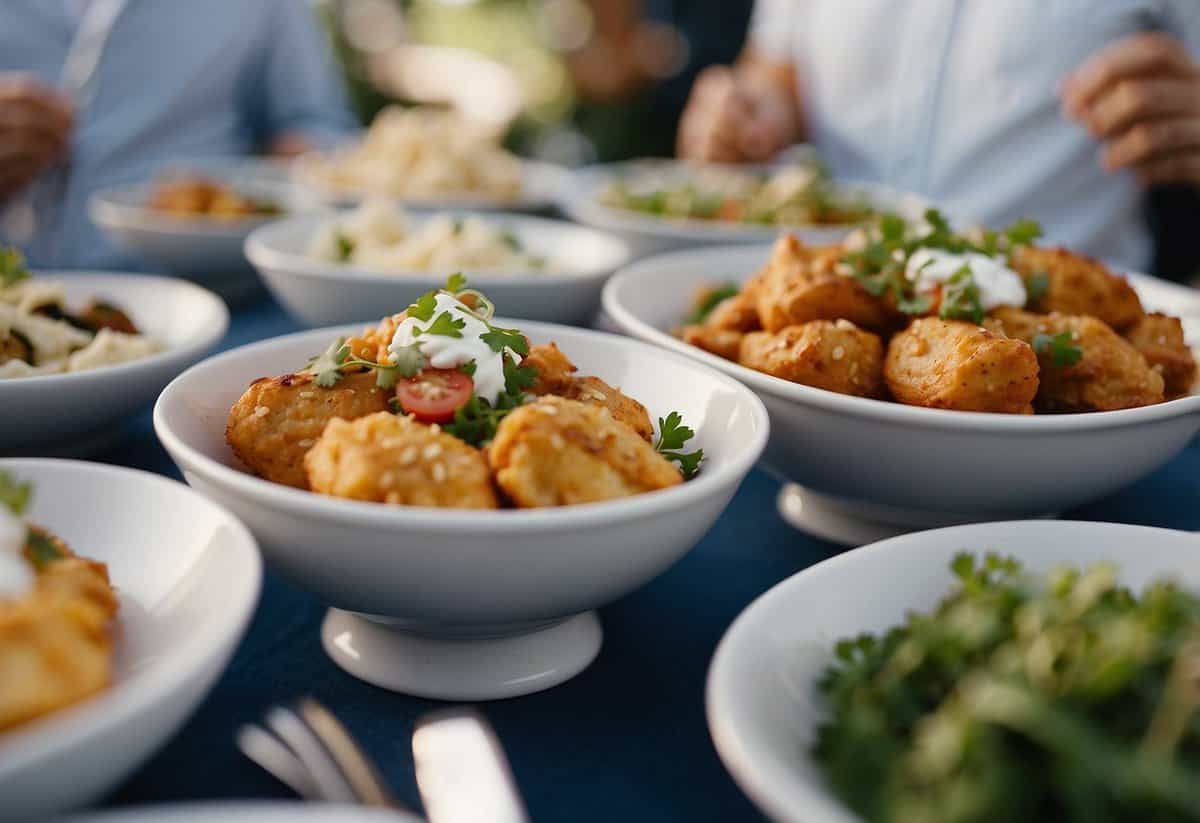
When you go to your wedding food tasting, it’s a good idea to ask for smaller portions. This will let you try a variety of dishes without feeling too full or overwhelmed.
Smaller portions help you stay focused on the flavors and details of each dish. This way, you can make thoughtful decisions about what to include in your wedding menu.
Another benefit is that it makes the tasting more enjoyable. You won’t spend the entire session feeling stuffed, which can affect your ability to give honest feedback.
You can always ask for a little more if necessary. This way, you get to experience everything your caterer has to offer without wasting food or feeling uncomfortable.
10) Taste the Vegetarian Options Too
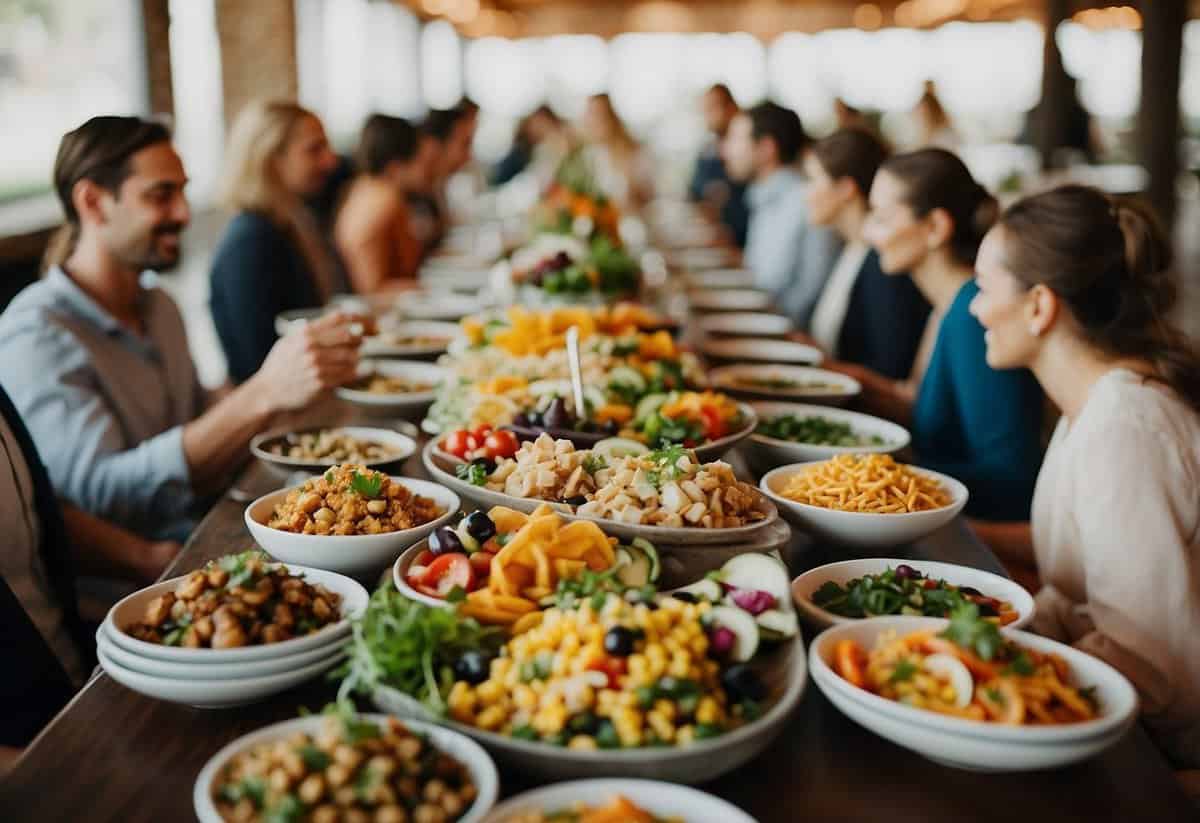
It’s important to taste the vegetarian options at your wedding food tasting. Many guests might prefer or only eat vegetarian food.
Make sure these dishes are just as delicious as the rest of the menu. Look for rich flavors from well-seasoned vegetables, herbs, and tasty sauces.
Offer a variety of choices. Items like mini vegetable pot pies or a grilled cheese sandwich bar can be a big hit.
Understanding Wedding Food Tasting
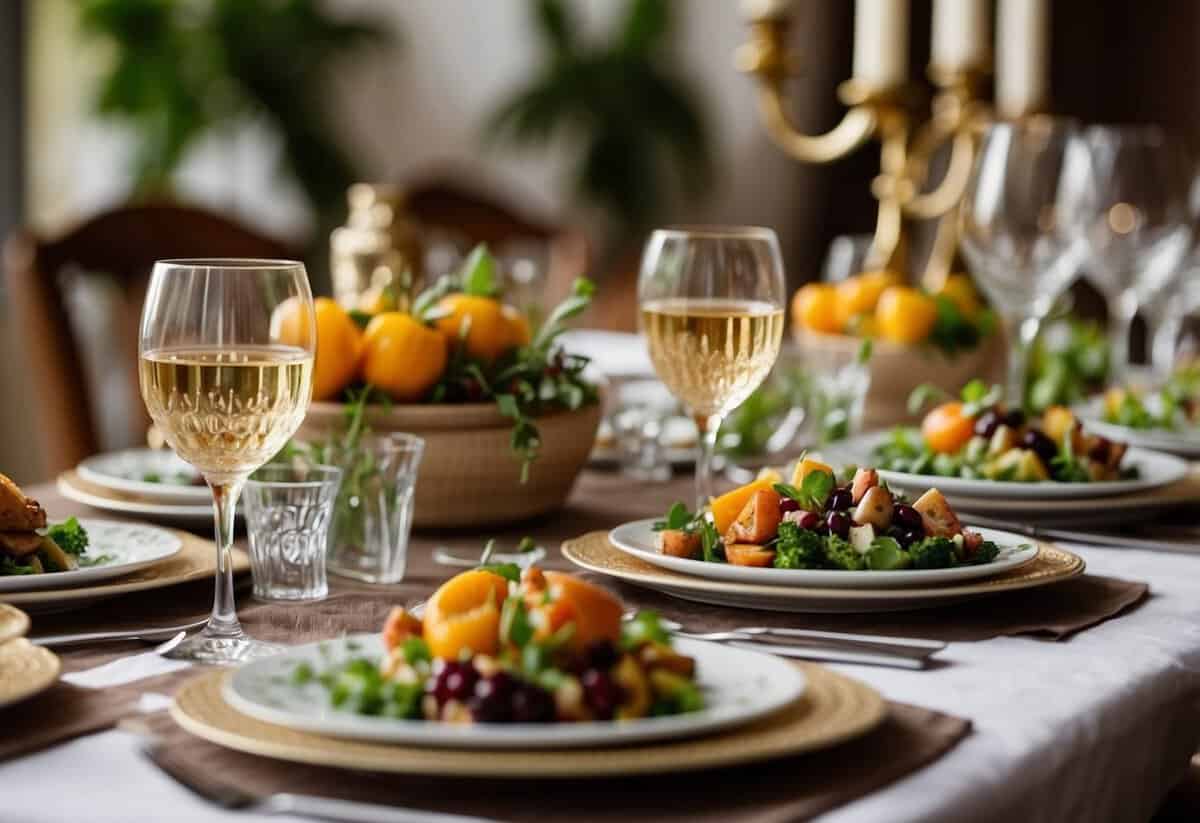
Wedding food tasting helps you choose the perfect dishes for your special day. It allows you to sample a variety of foods and make informed decisions about your wedding menu.
Purpose of the Tasting
The main goal of a wedding food tasting is to help you decide on your menu. You and your partner will try different dishes, from appetizers to desserts, to see what you like best. This is also an opportunity to ensure the food quality meets your expectations.
Ask the caterer about their preparation methods and ingredient sourcing. It’s a chance to discuss any dietary restrictions or special requests. You can use this tasting to make adjustments to the flavors and presentation.
What to Expect During the Tasting
Expect a variety of dishes to try. You will typically sample appetizers, main courses, and desserts. There might even be a selection of wines or drinks if they are part of your package. Remember that this event is usually more intimate, allowing you to focus on details.
Arrive hungry but not starving. This will help you fully enjoy the variety without feeling overwhelmed. Take notes on what you like and don’t like, as this will help you make final decisions later. Discuss openly with your caterer about any changes or preferences you might have.
The tasting is a chance to see how the caterer handles presentation and service. This preview helps you visualize the food experience your guests will have.
Tips for a Successful Tasting Experience
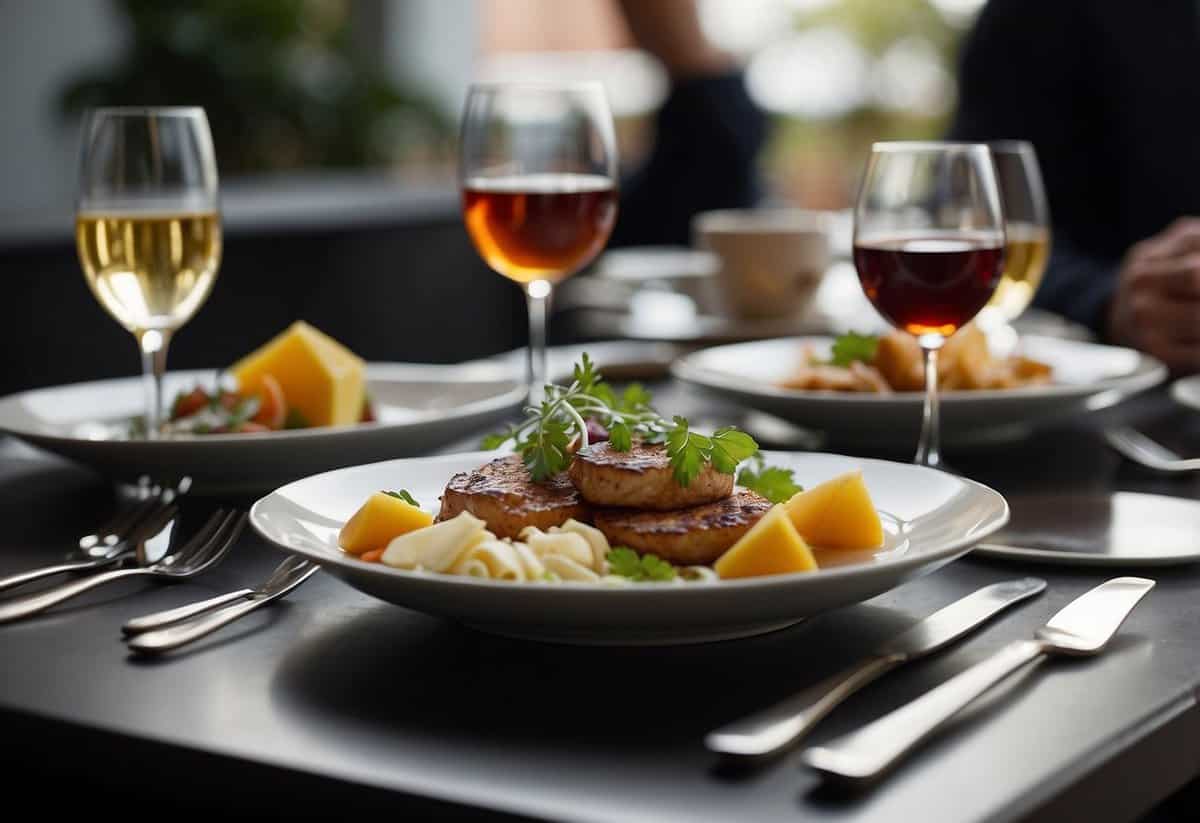
Preparation and coordination are key to ensuring your wedding food tasting goes smoothly. Make sure to address all your concerns, work closely with your partner, and involve your planner to make informed choices.
Come Prepared with Questions
Bring a list of specific questions to ask your caterer. Inquire about ingredients, preparation methods, and any potential allergens. Knowing how the food will be transported and presented on the big day can be important.
Ask about portion sizes and whether menu items can be customized. Don’t forget to request tasting different preparations to find the one that suits your taste. Be upfront about your budget so you can manage expectations and make realistic choices.
Coordinate with Your Partner and Planner
Work closely with your partner to ensure both of your tastes are considered. Listen to each other’s likes and dislikes and agree on final choices.
Include your wedding planner in the tasting process. They can provide valuable insights and help manage vendor relationships. It’s beneficial to have their input on logistics, particularly concerning the timeline and serving style. Effective communication with your planner ensures nothing is overlooked.








